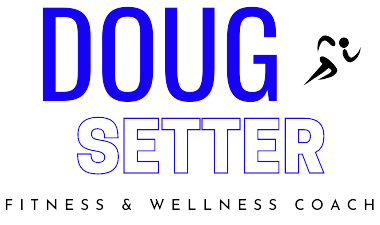Six Poisons You Might Not Recognize
The 6 poisons that fog your brain, hurt your joints and plug your sinuses.
This is not to ruin your fun. But you will make better progress in flatting your stomach and warding off the blues if you avoid or minimize the following poisons: Alcohol, tobacco, caffeine, wheat, dairy, and sugar.
- ALCOHOL
Almost every culture on the face of the earth has some form of fermented fruit or grain that they drink on social occasions. This drug called alcohol has been around for thousands of years, and, like most drugs, it affects different people in different ways.
For most people, a few drinks of good quality alcohol can make a meal or social event more enjoyable and relaxing. Conversely, a steady alcohol habit will cripple one’s health, even if one is a high functioning alcoholic. One only must visit a drunk tank or skid row to witness the effects of severe alcohol intake. Not to mention alcohol has been proven to have links to gout, diabetes, depression, divorce, and early heart attacks.
As much as I enjoy the occasional drink, I usually take various precautions, such as drinking plenty of water and supplements and eating high-protein foods. Alcohol depletes nutrients from the body and interferes with protein assimilation and liver function. It is for these reasons, I use supplementation.
Here is a brief list of supplements that can reduce the effects of alcohol’s by-product known as acetaldehyde:
| Vitamin C | 300 mg to 1,000 mg (A packet of Energy C© usually works well) |
| Multi-B vitamins | 50 mg |
| Cysteine | 300 mg |
The are more complex formulae found in Dr. Joan Mathews-Larson’s book: Seven Weeks to Sobriety or my own book — Reduce Your Alcohol Craving.
- TOBACCO
Tobacco is another substance that has been around for centuries. The key ingredient, nicotine, is highly addictive, and many of the other ingredients are carcinogenic. I have seen acquaintances and relatives die in their fifties from heavy smoking. I had pneumonia three times by the age of six, which might have been due to being around chain-smoking adults.
However, I have shared a peace pipe in a sweat lodge with no ill effects. The pipe was filled with naturally grown and dried tobacco, and I honestly can say it tasted fine. The problem with the mass-produced tobacco in western nations is that it is speed or “flue” dried (causing it to contain more sugar content) and filled with addictive and poisonous chemicals. Even cigarette paper is carcinogenic. Plus, it is heavily taxed and expensive.
- CAFFEINE
Most of the modern world runs on caffeine. Coffee, pop, chocolate, green tea, sports drinks, weight loss pills, and even breath fresheners. While the caffeine kick can help with mental alertness, energy, and even weight loss, it can also deplete your adrenalin stores.
As a young private soldier in the military, I recall how most of the older military members were constantly concerned over their coffee. It was always at the top of their list first thing in the morning or on shift, and it was often served out of large, aluminum dispensers. I had a friend who consumed over 10 cups of fresh ground coffee per day in civilian life. He was constantly complaining about how bad he felt. I suspect that he was suffering from adrenal exhaustion.
Heavy caffeine users often complain later in the life of intestinal and sleep problems. In her book, Caffeine Makes Me Bleed, Susan Lynn describes the effects of heavy caffeine consumption. Susan, who worked in the fast-paced, high-stressed construction industry in the eighties, had been a heavy coffee consumer. Eventually, her steady caffeine diet led to internal bleeding and other health problems.
- SUGAR (WHITE DEATH)
Most sweet substances in nature, such as berries and fruit, contain vitamins, minerals, bioflavonoids, and fiber. It was primitive people’s natural craving for sweets that led them to seek out sources of vitamin C and other nutrients. Unfortunately, this same natural craving draws us to consume sweet, refined substances that lack any food value.
One of the most damaging sweet-tasting substances over-consumed in the North American diet is white sugar, also known as sucrose or table sugar. Not only is it highly addictive, but it actually depletes the body of B vitamins, magnesium, chromium, and other minerals. This leads to tooth decay, nervousness, hypoglycemia (low blood sugar), allergies, and mood swings. Depressed people are often suffering from low blood sugar and vitamin B deficiencies. The over-consumption of sugar inhibits the immune system, especially when it is consumed just before sleep.
Refined sugar gives a person a little boost so that they are rewarded with a small burst of energy…however, this burst is followed by a feeling of sudden fatigue. Then the sugar junkie needs another small fix to keep them going…which results in yet another drop in energy. This is why many people cannot seem to stop eating refined sweets every hour. To top it off, sugar addicts are the most unreasonable people to deal with when it comes to changing their habits. A couple of simple methods for breaking this sugar fix are to:
- Keep a journal of your eating habits, and then figure out when and why you have this addiction. For example, some people eat sugared foods when stressed, worried, lonely, or angry.
- Start eating whole, high-fiber, or high-protein foods before consuming refined sugar. This way, your body will absorb the sugar more slowly than if you just ate the refined food alone. Even eating fiber-rich fruit instead of refined sugar helps satisfy the craving for sweets while slowing down the absorption of sugar.
- Exclude simple sugars such as fruit juice and replace them with more complex carbohydrates such as whole fruits, grains, and vegetables.
- Increase your intake of chromium. While not proven to lose weight and gain muscle, chromium stabilizes blood glucose (sugar) levels. Chromium can be found in broccoli, cheese, dried beans, chicken, calf liver, chromium chloride, and chromium picolinate supplements.
Many alcoholics and drug abusers are also hypoglycemic. They constantly crave sweets. Part of the rehabilitation at the Health Recovery Clinic in Minneapolis, Minnesota, involves the removal of sugar from the alcoholic’s diet. The other offending substance for some alcoholics is wheat. This brings us to…
- WHITE FLOUR
Bleached wheat flour is easy to store, has a long shelf life, and is easy to work with. It is the main ingredient in bread, pastries, pizza dough, and, oh yeah, paste for paper mâché. So, you can imagine your stomach trying to break down paste. Aside from having next to nothing in terms of nutritional value, white flour robs our bodies of nutrition because it impedes the absorption of nutrients from the intestines into the bloodstream. Once it passes through the stomach, the flour forms a glutinous mass that sticks to the sides of your intestines and is difficult to digest. In the old days, eating crackers or dry bread was a common remedy when someone had swallowed a broken chicken bone or other sharp objects. This is because it was well known that gluten would coat the sharp object and often let it pass along without damaging the digestive tract.
As a food, white flour gives you a full feeling, with little nutritional benefit. People who eat a steady diet of this white paste usually have bloated stomachs and thin arms and legs. Most food banks give away bread, pasta, pastries, and other white flour-based products. These items are cheap and plentiful, but hardly the staff of life.
When you are tempted to eat your next doughnut, danish, croissant, cream puff, or muffin, try eating something with less white flour, such as an oat muffin, oatmeal cookie, or date square. By cutting out or minimizing the amount of white flour you consume, you will be amazed at how much better you feel within just a few days.
- MILK
Many people from North European and southwest Asian backgrounds can consume massive amounts of milk with no side effects whatsoever. This is especially true if the milk is fresh and unprocessed. Several famous bodybuilders and athletes have been known to drink gallons of milk and remain physically powerful. At the same time, there are many more people whose bodies cannot tolerate the milk sugar called lactose. This makes most of the population lactose intolerant. Many people’s bodies cannot break down the large milk protein.
Before anyone starts protesting about milk and calcium, stop and ask yourself how Native Americans, Eskimo, Inuit, African and Asian people were able to lead such vigorous lives BEFORE the introduction of milk. Furthermore, what other animal do you know of that consumes milk (let alone the milk of a different species) after adulthood? The reality is that most humans lose the lactase enzyme after the age of two. Do you think that perhaps nature is trying to tell us something?
Except for some fermented dairy products like cheese, yogurt, and Kefir, I have consumed very little milk for the past 25 years. My bones have not shattered, nor have my teeth fallen out. My sinuses are much clearer than in my high school years, and I am sick less often.
Of course, it is hard to accept that what you have been force-fed all of your life might actually be poison to you. A simple method to test milk’s effects on you is simply stopping drinking it for a week and seeing what happens. If you have withdrawal symptoms (e.g., runny nose, sore eyes, gas, etc.), you might want to stop drinking it.




